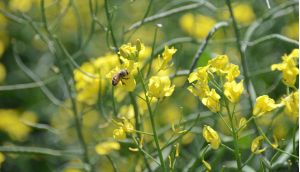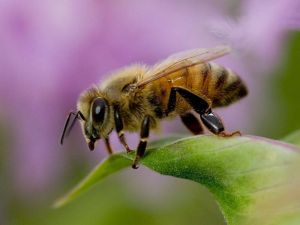RESEARCH involving the use of bee venom to treat breast cancer has landed a Willetton 23-year-old in the running for the WA Young Achiever Awards.
Ciara Duffy is among four nominees for the awards living within the City of Canning.
She is starting her third year of a PhD, supported by the Cancer Council WA, looking at the effects of honeybee venom as a potential treatment for aggressive breast cancer cells.
“I am passionate about breast cancer research because I have seen too many people near to me be affected by this disease, and I want to make a difference, particularly for patients with the very difficult to treat breast cancers such as triple-negative breast cancer,” Ms Duffy said.
While effective drugs have been developed for some of the breast cancer subtypes, there are no drugs clinically available which can specifically target triple-negative breast cancer cells.
“Previous research has found that bee venom can kill some cancer cells,” she said.
“What I can say is that my research is using Perth honeybees, which are some of the healthiest bees in the world due to our isolation, and I am testing the effects of Perth honeybee venom on various types of breast cancer.”
The venom used in her research is from about 90 bees housed at UWA, collected by putting the bees to sleep then manually dissecting out the venom glands.
The venom is transported to The Harry Perkins Institute where it is applied to the breast cancer cells Ms Duffy has cultured herself from patients.
Ms Duffy is investigating whether extracted honeybee venom can be used to effectively kill the aggressive breast cancer cells, without harming the normal cells of the body.
She was nominated for the Innovation Award.
Wilson’s Kit (Amy) Prendergast has been nominated for the Environment and Sustainability Award.
Helen Kwok, of Willetton, was nominated for the Online Achievement Award and previous nominee Cameron Thorn, of Shelley, was nominated for the Young Leadership Award.




